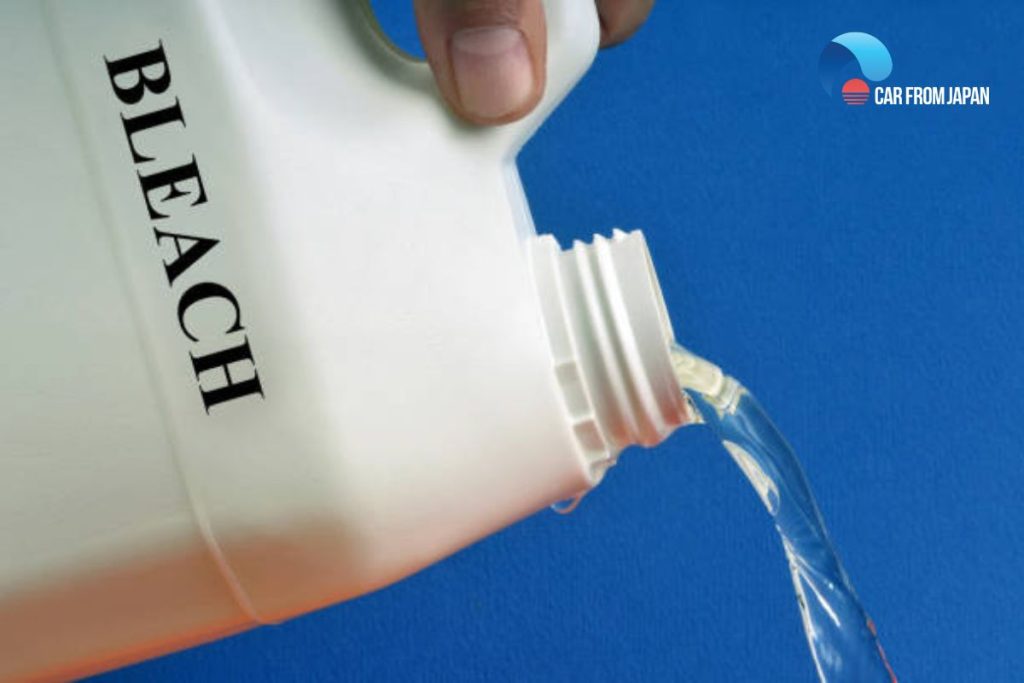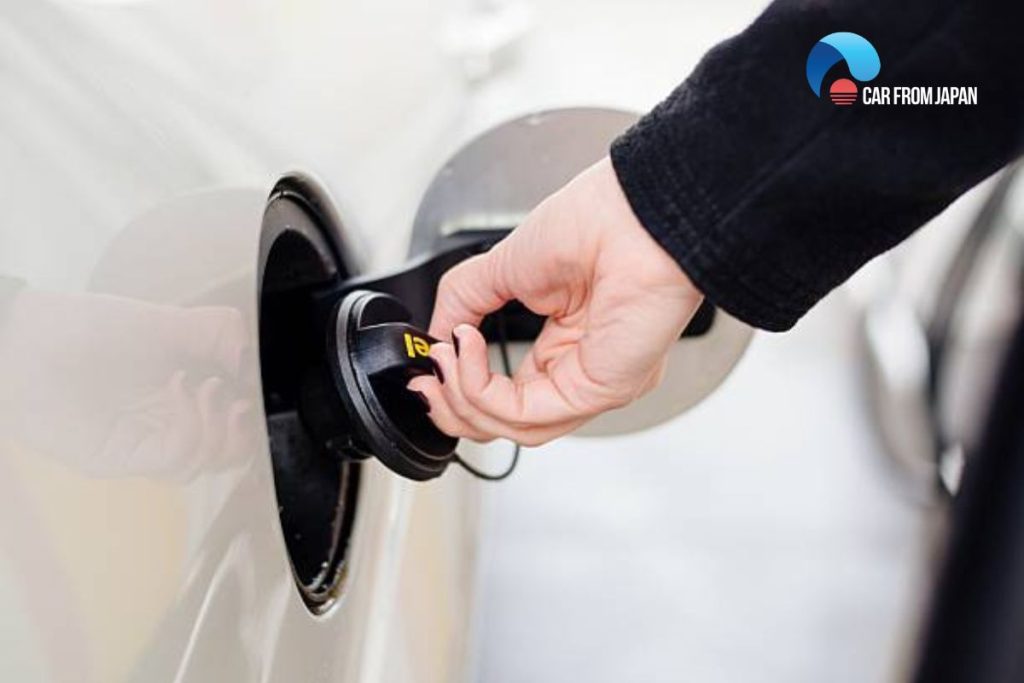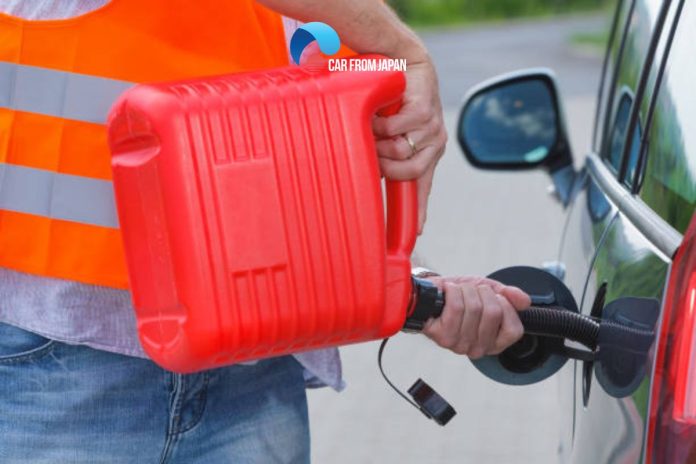You might have heard rumors about using household products like bleach to fix car problems, but trust us, this is one myth you should avoid. Adding bleach to your gas tank is not only ineffective but can also cause serious damage to your vehicle.
Well, we may want to know how the car reacts when there is bleach in gas tank. People don’t do these experiments because of safety concerns. But, hey, we’re here to explain to you what happens to a vehicle after adding bleach to the gas tank.
Contents
What Happens If You Put Bleach In Gas Tank?
Whether you put bleach in gas tank for ‘experimenting’ or someone else does that out of evil intentions, knowing what could happen will help you to handle the situation without any problem.
How the car reacts
Putting bleach with a small amount of motor oil in gas tank will cause little visual changes. The car will run (surprisingly) for a while, and then it will come to a stop with the liquid mix jetting out of the fuel injectors and other components of the fuel system.
How long the car lasts will depend on how much fuel is in the tank.
What will be the internal reaction?
Bleach is mostly water, but it also has a small amount of chlorine, which makes it caustic and corrosive. When coming in contact with the fuel, the chlorine will pre-burn into the fuel before it gets to the engine.
If you drive the car for a short period with bleach in gas tank, it will not cause much destruction.

You should still flush out the fuel and fill the tank with fresh, clean gas because the corrosive bleach can eat up certain metal and rubber components if left there for a long time.
Also, it can leave harmful sludge inside the valves and combustion chamber. In that case, using an alcohol-based fuel addition is the best solution because it can suck up the beach residue.
On the other hand, driving for a long time without knowing there is bleach in gas tank will bring disastrous effects. The longer it stays inside the engine components and fuel system, the more time it gets to erode the rubber and metal parts.
The caustic effect of bleach on these components is grave and unbelievably faster than normal corrosion. The fuel lines, tank, pump injectors – everything will be affected. The damage can even reach the cylinder head and intake manifold
How Much Bleach Does It Take To Ruin a Car?
If you are searching for ways to know how to destroy an engine with bleach, apply these two methods. Pour a moderate amount and drive the car for a long time (or as long as it keeps running).
Or, pour a whole container with a little amount of fuel. That much bleach is likely to take 5 to 10 minutes to destroy a car.
In a way, the effects that bleach will cause are almost similar to pouring the same amount of water into the tank (except for the corrosive part). However, if you want to stop the engine completely, you have to add a lot of bleach in gas tank.

What To Do If You Know There Is Bleach On A Car?
You must be careful not to start the engine if you believe someone has bleached your gas tank. You just need to drop the tank and thoroughly drain the tank of fuel and bleach if the bleached fuel doesn’t escape from your gas tank.
To be cautious, you should also switch the fuel filter, but since the engine hasn’t started, this shouldn’t be an issue.
It’s imperative that you avoid using water to clean the tank since water in your gas tank might lead to further issues that require attention.
However, you should submit a police complaint first before towing the car to a repair facility. This will be helpful for insurance purposes as well as maybe aiding in the apprehension of the offender.
You could just be responsible for the deductible, depending on your coverage, which can save you a ton of money.
Check out the video below to see more details on what happens if you put bleach in a gas tank!
How To Prevent Gas Tank Harm
You should take certain precautions to guard your gas tank from potential damage. Purchase a locking gas cap if your car doesn’t have a locking fuel door that can be opened from the inside or with a key.
Most practical jokes or efforts to tamper will be foiled by a strong lock on the gas cap. Regularly check your gas cap for any indications of damage or manipulation.
Moreover, when refueling, be aware of your surroundings. In the vicinity of petrol stations, keep an eye out for strange people or activity. When you need to get gas, always select reputable, well-lit, and safe locations.
FAQs on Bleach In Gas Tank
What occurs if bleach is put in a diesel engine?
Gas and diesel engines of any sort will suffer damage from bleach. When exposed to the bleach, not just the engine but also all of the fuel tank’s pipes and the gasoline tank itself will corrode.
To the tank, the effect is practically immediate. The effect on the lines happens practically instantly once the engine is running.
What happens when you mix bleach and gasoline?
The effects of mixing gasoline with chlorine bleach at high quantities can be disastrous. Gasoline will burn more efficiently with the help of chlorine, which also creates extremely dangerous vapors.
Make sure to keep these chemicals away from your house and never close to one another while storing them.
Is gasoline and bleach flammable together?
For storage and transportation, chlorine gas can also be held under pressure as a liquid.
Despite not being flammable, chlorine gas interacts violently with many common substances, including alcohols, ammonia, and gasoline, and it has the potential to ignite several materials, including wood, paper, oil, and clothes.
Is bleach effective at breaking up oil?
Bleach can be effective in hiding stains that have caused discoloration, but it will do nothing to take the oil out of the clothes, rendering it worthless. Bleach may also harm some sensitive materials, so avoid using it in oily environments.
What should never be mixed with bleach?
Bleach should never be used with ammonia, acids, or other cleansers. Moreover, bleach used with ordinary cleaning chemicals might result in significant damage.
So, before using a cleaning product, always read the product label carefully!
Conclusion
In short, adding bleach to your gas tank is a recipe for disaster. It won’t fix any problems and will likely create a whole host of expensive ones. Stick to recommended fuels and maintenance practices to keep your car running smoothly and safely. If you’re experiencing car trouble, consult a qualified mechanic for a proper diagnosis and repair.




Seems childish.
Well someone dump 2 gallons of beach and we didn’t now it and vehicle does not run no start and now we have to pay a lot to get it back meaning brand new fuel rails fuel pump and now a whole new engine because we didn’t now we were running bleach for a month so the person broke the locking gas cap and again we don’t drive the vehicle often gas prices are to high to be putting so much so new whole engine
Hi I was wondering if there is a way to be able to tell that there is bleach in your tank. Would you be able to smell it or maybe some smoke might come out or stick a hose in to the tank and you might be able to see something.